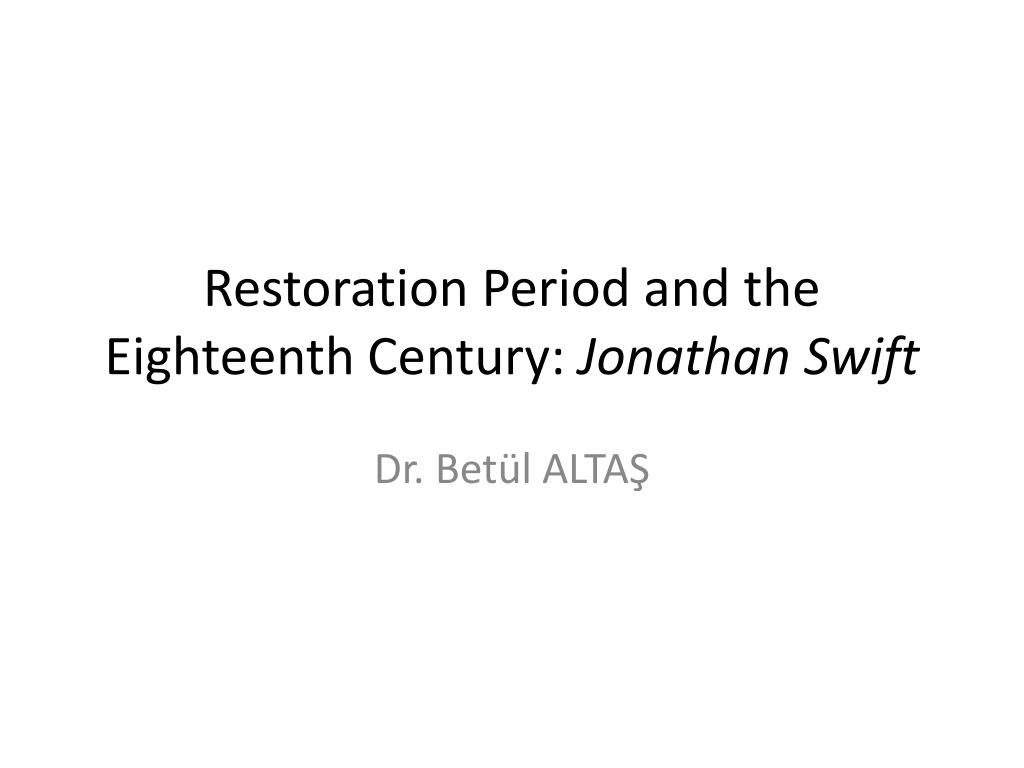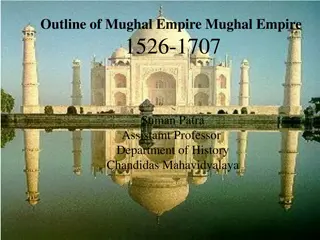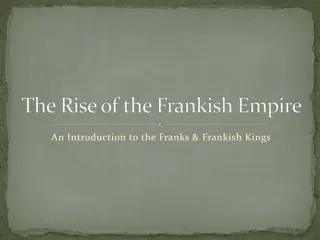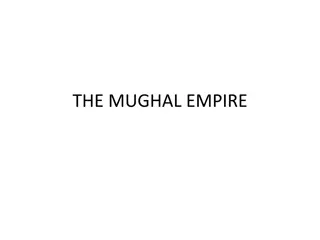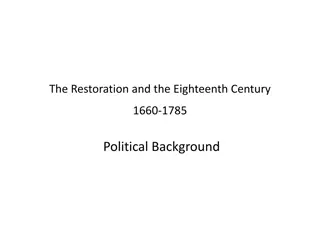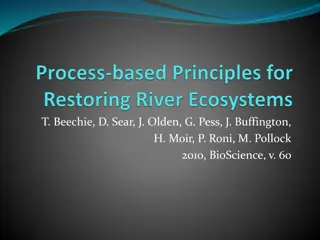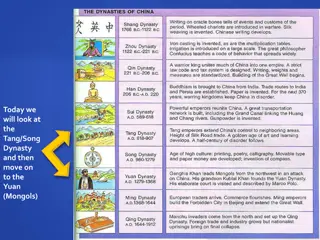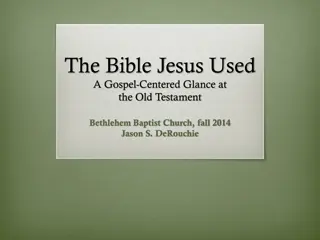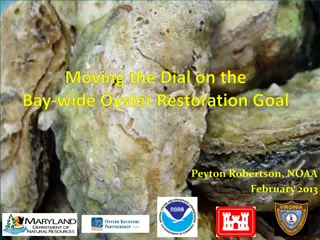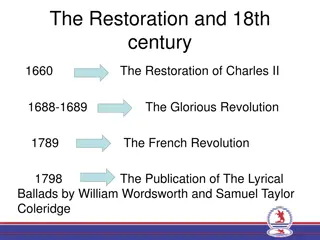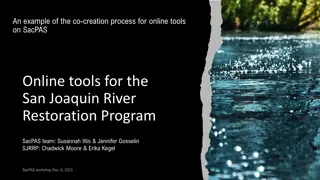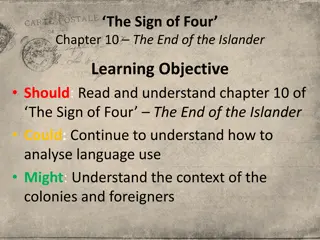England's Restoration Period and the Rise of the British Empire
England saw significant historical events during the Restoration Period and the eighteenth century. From Charles II's restoration to the Glorious Revolution, the Act of Union of 1707, and the rise of British dominions worldwide, this era marked political stability, literary contributions, and the growth of the British Empire. Notable writers like Jonathan Swift, Edmund Burke, and David Hume emerged during this period, reflecting the intellectual background of the time.
Download Presentation

Please find below an Image/Link to download the presentation.
The content on the website is provided AS IS for your information and personal use only. It may not be sold, licensed, or shared on other websites without obtaining consent from the author. Download presentation by click this link. If you encounter any issues during the download, it is possible that the publisher has removed the file from their server.
E N D
Presentation Transcript
Restoration Period and the Eighteenth Century: Jonathan Swift Dr. Bet l ALTA
1660: Charles II restored the English throne. 1688-89: The Glorious Revolution (deposition of James II). 1700: Death of John Dryden. 1707: Act of Union unites Scotland and England , which thus become Great Britain . 1744-1745: Deaths of Alexandar Pope and Jonathan Swift 1784: Death of Samuel Johnson.
Historically England to which Charles Stuart returned in 1660 was a nation divided against itself. Britons were exhausted by twenty years of Civil wars and revolution. They were visited by two disasters: The plague of 1665 A fire of 1666
The nation rose from its ashes, in the century that followed, to become empire. Within two decades of the king s return, the Royal Navy had defeated the navy of Holand. series of wars occured between 1689 and 1763, against France
Consequently The British acquired dominions that stretched around the world, from Canada in the west to India in the east. Additionally, the nation become whole again. The Glorious Revolution of 1688-89 established: * a rule of law * Act of Union of 1707
Act of Union of 1707, a political alliance under which England was transformed into Great Britain. The Scottish Parliament and the English Parliament united to form the Parliament of Great Britain.
Many of the great British writers of the 18th century like: Jonathan Swift Edmund Burke Richard Sheridan Olivier Goldsmith James Thomson James Boswell David Hume Ireland Scotland
Intellectual Background The political turbulence of the 17th century subsided gradually in the last decades of the century and during the Restoration Period (1660-1700). Literature also reflected the conflict of values.
Most important aspect of the Restoration period is the increasing challenge of various forms of secular thought to the old religous orthodoxies which had been matters of life and death. As the voices of Roman, Anglican and Dissenter grew more subdued, other interests attracted adventurous minds.
Science in the 17th century was concerned with physical sciences such as astronomy, physics and chemistry. Discoveries in these sciences aimed to show that there was: *evidence of immutable law and order *clear proof of wisdom and goodness of God in his creation.
Newtons law of gravitation seemed to support the idea that divine intelligence created and directs the universe. Deism or natural religion which had a wide appeal to enlighted minds. Deists deduced the existence of a supreme being or First cause from the existance of the universe.
The 17th century was more secular, tolerant and moderate. Most influential philosopher is John Locke, Essay Concerning Human Understanding (1690). In the 18th century of England, Swift makes a severe criticism about : * metaphysics * abstract logical deductions *theoretical science. It is similar to Pope s in an Essay on Man.
Literary Theory The literature of the period between 1660 and 1785 falls into three periods of about forty years each: 1. The first, extending to the death of Dryden in 1700, may be thought of as the period in which English neoclassical literature came into being
2. The second, ending with the death of Pope in 1744 and of Swift in 1745. 3. The third, concluding with the death of Johnson in 1784 and publication of William Cowper s The Task in 1785.
The sudden change took place in 1660, but the change was not so sudden as it appears. Like the English Renaissance, it was part of a general movement in European culture, seen in the 17th century France. It was a reaction against the boldness of European literature of the late Renaissance in favor of simplicity, clarity and good sense.
This tendency is mostly observed in the preference of John Dryden. In England, it produced a literature termed neoclassical or Augustan , because it was influenced by the writers of the reign of the first Roman emperor Augustus Caesar.
Romes Augustan age was period of stability and peace after the civil war which followed the death of Julius Caesar. Chief poets, Virgil, Horace and Ovid, addressed their works to a aristocracy. In this regard, Dryden s generation was aware of an analogy between the situtations of Post- civil war England and Augustan Rome.
Later generations would be suspicious of that analogy. After 1700, most writers stressed that Augustus had been a tyrant who thought himself greater than the law. In 1660, there was hope that Charles II would be a better Augustus, bringing to England the civilized virtues of an Augustan age without its vices.
18th century literature During the forty-five years between the deaths of Dryden and Swift, the literature that Dryden and his contemporaries had created full maturity. Jonathan Swift s A Tale of aTub (1704-10) Joseph Addison s The Campaign (1705) Matthew Prior s Poems on Several Occasions (1707) Steele s Tatler (1709) Alexandar Pope s Pastoral.
On the other hand, satire flourished and the most distinguished practitioners are Pope and Swift. Satirists are usually conservative, using their weapons against deviations from norms of conduct which threaten to undermine traditional and socially approved behaviour.
Both Pope and Swift wrote their satires as Tories , at a time when Britain was dominated by Whig party. Swift, who was born of English parents in Dublin, had to move to England with other Anglo-Irish because of Jame s II invasion of Ireland.
He wrote powerful satires on corruptions in religion and learning.These are : A Tale of a Tub (1704) The Battle of the Books (1704) The Gulliver s Travells (1726)
